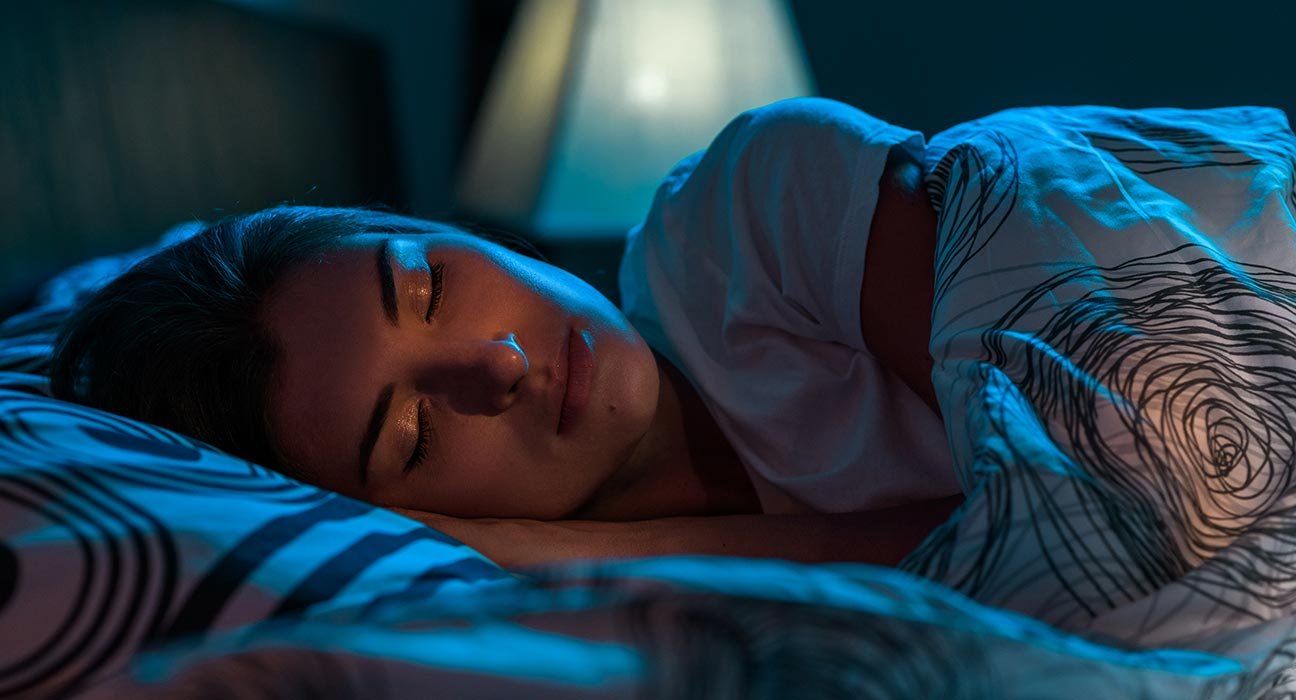How do you feel after a good night’s sleep? Probably better prepared for the day, more productive, energetic, and satisfied. Isn’t this feeling sufficient to prioritise sleep for overall well-being?
Sleep, one of the most compromised aspects of well-being, calls for attention and awareness with a day dedicated to understanding its importance for holistic well-being. This year, world sleep day falls on March 17. Preoccupied with thoughts, cares, and concerns, operating on autopilot mode, gulping the food quickly, and rushing into the day right after getting out of bed to fulfill all the roles and responsibilities are common characteristics of a fast-paced world. Each of these factors bears an impact on the quality of our sleep. The theme for the day centers around the importance of sleep to maintain health. Good health comprises physical, mental, social, and spiritual well-being. Rest shares a strong relationship with physical and mental health evident from a plethora of examples and extensive literature studying all three factors.
Sleep and Health
Sleep disorders and the relationship between sleep and mental health summarise the importance of prioritising sleep like any other steps we take to ensure good health including diet and exercise. Obstructive sleep apnea is one of the most common sleep disorders with over 80 million people going through it and 80 per cent of individuals with the same condition remaining undiagnosed. Sleep apnea is marked by a sudden pause in breathing during sleep. Insomnia, another commonly heard sleep disorder, involves an inability to fall asleep, difficulty staying asleep, and problems getting back to sleep in case one wakes up. It can also lead to depression, anxiety, difficulty concentrating, and impaired functioning in multiple areas.
Disturbance in psychological functioning also impacts sleep. Repercussions of various psychological disorders like anxiety, bipolar disorders, depression, attention-deficit hyperactivity disorder (ADHD), and post-traumatic sleep disorder (PTSD) and quality of mental health affected by stress, tension, pressure, worry, and fear show up in sleep patterns. Chronic aches, conditions associated with the heart, lungs, and nerves, lifestyle habits including consumption of heavy meals before sleeping and poor sleep hygiene are also responsible for poor sleep.
These reasons are satisfactory enough to understand the consequences of sleep deprivation on well-being. Shifting the attention to understanding the positive effect of sound sleep deserves tantamount attention. Research has consistently shown that good sleep is associated with better brain health, improved focus, better productivity, more energy, improved memory, heightened creativity, adequate academic performance, boosted cognitive functioning, and regulation of emotions.

Essentials for a Good Night’s Sleep
Disciplined routine: You might feel this point has been explained in nearly all the content that talks about sleep hygiene. The importance of this one factor is evident from the fact that it has been emphasised time and again. The same time to bed and rise trains the body clock that regulates the circadian rhythm essential in maintaining a sleep schedule.
Moreover, studies have shown melatonin production, the sleep-inducing hormone, well before midnight among adults. So, the same time to bed and the same time to rise is a must for a healthy routine.
A big NO to screen: Avoid using any device that emits blue rays at least an hour before bedtime as it is majorly responsible for sleep disturbances and melatonin suppression. Bright light during the day reduces the production of melatonin. The blue light from the screen during nighttime can fool the brain and deprive it of producing melatonin, affecting the rest periods. Switching on the night or dark mode and reducing brightness two-three hours before bed can also help.
Avoiding heavy, junk, and fried food before bed: The body and organs serving us the entire day deserve some rest at night. If we consume heavy meals before bed, a lot of energy goes into processing and digesting the food which can also lead to indigestion, bloating, and gastric issues, naturally interfering with sleep. Salt and grains shouldn’t be consumed after 8 pm if one has to work according to the laws of nature. Modifying the timings for the modern lifestyle, ideally, should be avoided after sunset.
No stimulants or ‘depressants’ before bed: Caffeine can exacerbate sleep deprivation as it is adenosine receptor antagonist, a receptor that promotes sleepiness. According to studies, evening caffeine consumption is linked to shorter amounts of deep sleep, reduces the total duration of sleep and makes it difficult to fall asleep. On the other hand, alcohol may put one to sleep but chronic and heavy consumption deteriorates sleep quality. Consuming alcohol also increases the risk of sleep apnea.
Chanting a peaceful mantra, an affirmation or simple breathing exercises before bed: Less than ten minutes can work wonderfully to feed the mind with wholesome thoughts. Simply repeating ‘Aum’, the universal vibration of existence temporarily separates you from fast-paced life. This enables you to pause, process, and connect with yourself. Affirmations like: “I am not the emotions I feel, I am not the thoughts I think, I am eternal joy” allows you to draw a line so that you don’t label all of yourself as one particular emotion or thought. This is not to undermine the importance of acknowledging how you feel but to understand that this is a temporary feeling which can be worked through.
Coming back to where we started, world sleep day is an important reminder for all students, working professionals, housemakers, and kids to value the basic physiological need and satisfy it with adequate rest and routine. Highlighting the importance of sleep in the work culture, Wakefit Solutions, an Indian company in Bengaluru announced a surprise holiday today for all employees. Such small acts remind each one of us to make room for self-care.













Leave feedback about this